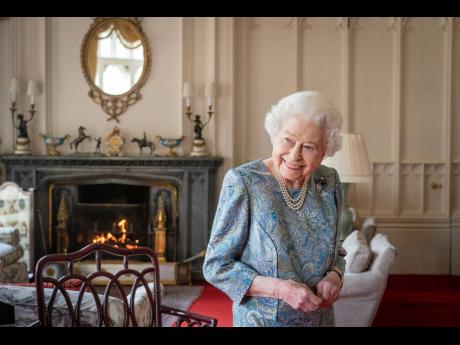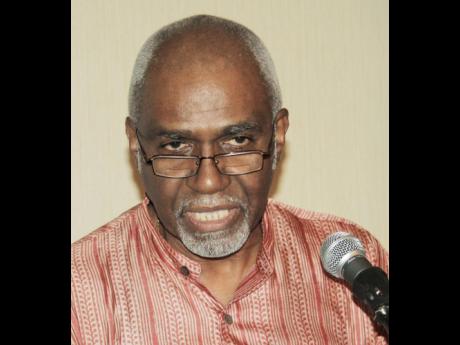Patrick Robinson | The irrelevance of readiness for independence – Part II
How Jamaica became Independent in 1962
The right to full independence inheres in us as a people, as a reflection of our humanity, and it is a matter of the deepest regret that in 1962 Jamaica did not seek a form of independence that would have separated us constitutionally from the British Monarchy. We did not need to do anything in 1962 in order to achieve independence, and we certainly do not need to do anything in 2022 to achieve full independence. Full independence is our right. Yes, we certainly need to improve economic and other conditions, particularly for the disadvantaged black masses. However, none of this has anything to do with removing the Queen as our Head of State.
But if one is looking for action by Jamaica, one will find we are not lacking in that department. There was the Christmas War of 1831, launched by the enslaved Sam Sharpe, which was instrumental in the emancipation of our ancestors in 1834; there was also the Morant Bay War of 1865 in which Paul Bogle confronted the injustice suffered by the black poor in the parish of St Thomas; and closer to modern times, there was also the Labour War of 1938 for better working conditions. If readiness was a condition for full independence – and I have conclusively shown that it was not – Jamaica was ready for full independence in 1831, 1865, and 1938. All of these wars of resistance had freedom from colonial rule as an objective and contributed to the maturation of the right to self-determination as a rule of customary international law by the end of 1960. Jamaicans may wish to view these three events as the furnace in which our independence was forged.
Ridding ourselves of the constitutional attachment to the British Monarchy should never be qualified as “empty symbolism”. Consider the atrocities carried out in Jamaica by England and the United Kingdom during the colonial period, including the unlawful practice of transatlantic chattel slavery, with the Royal family itself being a significant participant in this grotesque practice; when those atrocities are juxtaposed against the centuries-old struggles of our ancestors for freedom from transatlantic chattel slavery and colonial rule, exemplified by the three iconic events to which I have referred, it is beyond any reasonable comprehension how Jamaica’s complete disengagement from the British Monarchy could be viewed as “empty symbolism”.
FREELY EXPRESSED WILL
As the International Court of Justice (ICJ) held in the Western Sahara case, the exercise of the right to self-determination must reflect the freely expressed will of peoples, which was usually ascertained by referenda conducted by the General Assembly. However, in “special circumstances” – and Jamaica fell in this category – it was not considered necessary to carry out a referendum. Jamaica’s independence proceeded on the basis that it reflected the freely expressed will of the Jamaican people.
Therefore, when Jamaica attained independence in 1962, it had a right under international law to its independence, and in whatever form it wished, whether based on a republican system or the United Kingdom parliamentary system; concurrently, the United Kingdom had an obligation under international law to respect that right. Had the United Kingdom proved difficult and attempted to delay Jamaica’s advance to independence, it is likely that any court or tribunal with jurisdiction would have arrived at a decision similar to that of the ICJ in the Chagos case: such action by the United Kingdom would be held to be in breach of the customary right to self-determination reflected in 1514, and an order made requiring the United Kingdom to bring to an end its administration of Jamaica by ensuring that all powers were transferred to Jamaica. Obstructionist conduct by the United Kingdom would have particularly been in breach of paragraph 5 of 1514 which provides: “Immediate steps shall be taken, in Trust and Non-Self-Governing Territories or all other territories which have not yet attained independence, to transfer all powers to the peoples of those territories, without any conditions or reservations, in accordance with their freely expressed will and desire, without any distinction as to race, creed or colour, in order to enable them to enjoy complete independence and freedom”.
Consequently, as a matter of law, the attainment by Jamaica of independence was not a grant from the United Kingdom, the colonising State. Rather, independence resulted from the discharge by the United Kingdom of an obligation imposed on it by international law to transfer all powers to Jamaica.
Neither Jamaica nor any of the other Commonwealth Caribbean States had to beg the United Kingdom for independence, because the law had already developed to a stage that recognised our inherent right to that status. In light of the transformational development that occurred by the end of 1960 by virtue of the crystallisation of the right to self-determination as a rule of customary international law, we should stop reciting that the United Kingdom granted Jamaica independence. In 1962, Jamaica’s independence was not theirs to grant. It cannot be maintained that you have been granted something to which you have a legal right and which the supposed grantor is under a legal obligation to concede to you. When a colonial power discharges its international obligation to transfer powers to its colony for the exercise by that colony of its right to self-determination, it is a misstatement of the law to assert that it has granted that colony independence. Teach not that the United Kingdom granted us independence. Teach instead that we won our independence on the back of the struggles of our enslaved and freed ancestors, notably Sam Sharpe, Paul Bogle, George William Gordon and Marcus Garvey.
CONSTITUTIONAL NEGOTIATIONS
It is instructive to see how the ICJ and an arbitral tribunal have treated constitutional negotiations prior to independence between a colony and the UK. In response to the argument that during those negotiations Mauritius had agreed to cede the Chagos Archipelago to the United Kingdom, the ICJ held that “it is not possible to talk of an international agreement, when one of the parties to it, Mauritius, which is said to have ceded the territory to the United Kingdom, was under the authority of the latter”. The United Nations Convention on the Law of the Sea Annex VII Arbitral Tribunal held that by virtue of the Lancaster House Undertakings by the United Kingdom during the constitutional negotiations, the United Kingdom was stopped from denying the binding effect of its commitment to return the Archipelago to Mauritius once the islands were no longer needed for defence purposes.
All the Commonwealth Caribbean States, except Dominica, have confirmed the outlawed colonial doctrine of gradualism and lack of readiness by not proceeding to a form of independence without the Queen as Head of State. This practice is, perhaps, the clearest reflection of the extent to which colonisation conditioned the colonised Caribbean to believe that we were not able to govern ourselves without some constitutional relationship with the British Monarchy.
If it took 55 years for the best managed Caribbean State, Barbados, to replace the Queen of England as its Head of State, how much longer will it take those Caribbean States that are not as well managed to take similar action? It must be noted, however, that Barbados was not required to hold a referendum concerning the removal of the Queen as its Head of State.
In considering whether the difficulties presented by the constitutional requirements are a factor explaining the delay in removing the Queen as Jamaica’s Head of State, it would be difficult to advance the proposition that those difficulties are as consequential as the colonial doctrine of lack of readiness. To begin with, the prime minister’s stress on the need for Jamaica to achieve more before removing the Queen as Head of State argues strongly in favour of lack of readiness as the predominant, if not the only, explanation for this phenomenon of delay. Since Independence in 1962 there has not been much parliamentary or extra-parliamentary activity in Jamaica around the issue of the removal of the Queen as Head of State. Thus, in respect of one of the constitutional requirements, namely, two-thirds majority in each of the two Houses of Parliament for passage of the amending legislation, it is noteworthy that no amending bill has ever been laid in the sixty years of the Jamaican Parliament, not even when the Government has, as is now the case, a two-thirds majority of the House of Representatives, and would only need one swing vote in the Senate to discharge this particular constitutional obligation. Nonetheless, I am confident that a bona fide bipartisan approach in the campaign prior to the required referendum would result in a positive outcome.
The British Monarchy is rather like an obsolescent growth encrusted on our nationhood, impatient for excision. Time come!
- Judge Patrick Robinson is a Jamaican member of the International Court of Justice. Judge Robinson has been a member of the ICJ from 2015. The views expressed in this article do not necessarily reflect those of the ICJ. This article is the second in a two-part series around Jamaica’s 60th anniversary of independence. Send feedback to columns@gleanerjm.com.


